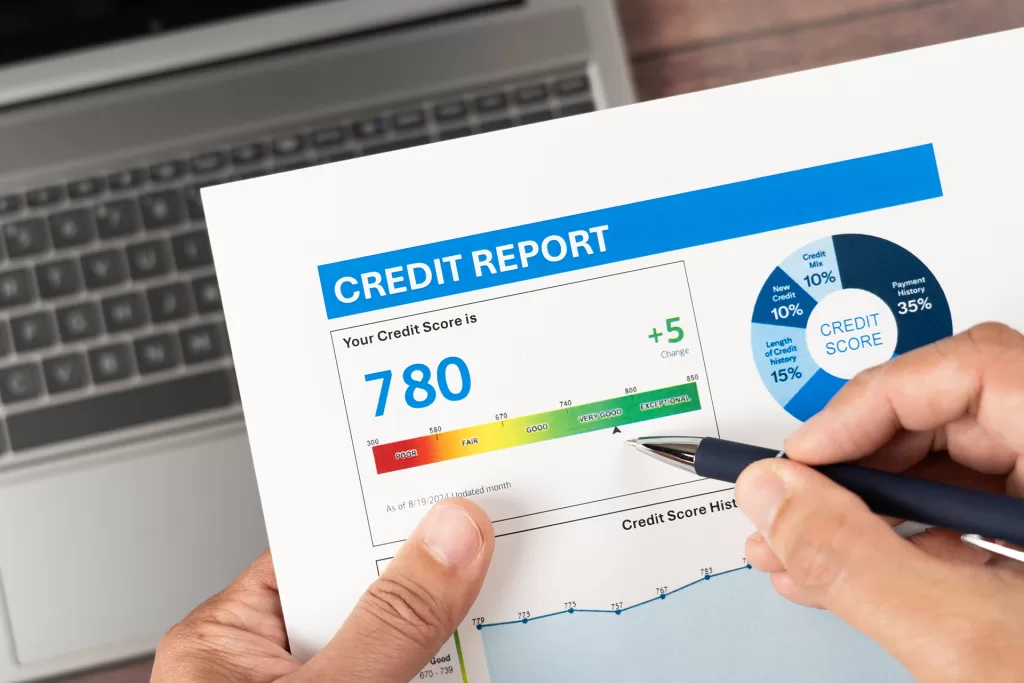
Let’s be real—your credit score is everything. It’s the magic number that decides if you’re getting that dream apartment, scoring a low-interest loan, or getting ghosted by banks. Whether you’re trying to recover from past mistakes or build your credit from scratch, understanding how to take control of your credit score is key to securing your financial future.
But don’t worry, I’ve got you covered with this step-by-step guide to leveling up your credit score—no jargon, just real talk.
What is a Credit Score (And Why Should You Care)?
Your credit score is that 3-digit number that basically tells lenders, “Hey, can I be trusted with money or nah?”
Here’s the breakdown:
- 300-579: Yikes. Time to start rebuilding.
- 580-669: Not bad, but room for improvement.
- 670-739: Solid. You’re in the “good” zone.
- 740-799: Now we’re talking!
- 800+: Absolute boss status.
Your score is based on stuff like your payment history, credit usage, and account mix. The better it is, the better your financial opportunities—think lower interest rates, bigger loan approvals, and credit cards with perks that actually matter.
Step 1: Check Your Credit Report Like a Hawk
First things first—know where you stand. You can’t fix what you don’t track, right? Get a free credit report from sites like AnnualCreditReport.com and review it carefully.
What to look for:
✅ Errors (wrong balances, accounts you never opened, shady activity).
✅ Missed payments (because “oops, I forgot” doesn’t cut it with credit bureaus).
✅ High balances that might be crushing your score.
Pro Tip: If you spot an error, dispute it ASAP. Even a small mistake could be dragging your score down.
Step 2: Pay Your Bills On Time (Seriously, This is Huge)
Your payment history is the biggest factor in your credit score—accounting for about 35% of it. Late payments stick around like that one awkward high school memory—up to 7 years on your report.
How to stay on track:
- Set up auto-pay so you never miss a due date.
- Use calendar reminders if auto-pay isn’t your thing.
- Even if you can’t pay the full balance, always make the minimum payment.
Pro Tip: Late once? Call your creditor and ask for a “goodwill adjustment.” They might remove it if you’re usually on point with payments.
Step 3: Keep Your Credit Utilization Low (Less is More)
Credit utilization is just a fancy way of saying “how much credit you’re using compared to how much you have available.” If you’re maxing out your cards, lenders think you’re desperate, and that’s a red flag.
The sweet spot:
👉 Keep your credit utilization under 30%, but if you can, aim for 10% or less for that VIP score boost.
Quick Fix:
- Pay down high balances ASAP.
- Ask for a credit limit increase (but don’t splurge with it).
- Spread purchases across multiple cards instead of maxing out one.
Step 4: Don’t Ghost Your Old Credit Accounts
Thinking of closing that credit card you haven’t used in years? DON’T. Keeping old accounts open helps boost your credit history length—aka one of the factors that helps your score.
Why it matters:
- Longer credit history = lenders trusting you more.
- Closing accounts can spike your credit utilization overnight.
Pro Tip: Use old cards for small recurring bills to keep them active without piling up debt.
Step 5: Be Picky About Applying for New Credit
Every time you apply for a new credit card or loan, your credit report takes a hard inquiry hit, which can shave off points from your score.
The golden rule:
- Don’t apply for new credit just because.
- Space out applications—doing too many at once looks desperate to lenders.
- Check if you pre-qualify before applying to avoid unnecessary hits.
Pro Tip: If you’re rate shopping for things like a car loan or mortgage, do it within a 14-day window. Credit bureaus will count it as one inquiry instead of multiple.
Step 6: Mix It Up with Different Types of Credit
Having a good mix of credit accounts—like credit cards, auto loans, and installment loans—shows lenders you can handle different types of credit responsibly.
But here’s the deal: Don’t open new accounts just to diversify. Only take on debt if you actually need it.
Step 7: Consider a Secured Credit Card
If your credit is, well…not great, a secured credit card can be a game-changer. It works like a regular credit card, but you put down a deposit as collateral. Use it responsibly, and it’s an easy way to build credit back up.
Pro Tip: Treat it like a regular card—make small purchases and pay them off in full every month.
Step 8: Work with a Credit Counselor (If You’re Struggling)
Sometimes, we need a little help. If you’re drowning in debt and struggling to keep up, a credit counselor can help you:
- Develop a budget that works for you.
- Negotiate lower interest rates with creditors.
- Get on a debt management plan without wrecking your credit further.
Warning: Avoid scams and shady companies promising to “fix” your credit overnight. If it sounds too good to be true, it probably is.
Step 9: Be Patient & Stay Consistent
Improving your credit score isn’t a sprint—it’s a marathon. Good habits over time are what will take you from meh credit to excellent. Stick with it, and your future self will thank you.
Key Takeaways:
✅ Pay bills on time, every time.
✅ Keep balances low and accounts open.
✅ Be strategic about applying for credit.
✅ Mix it up with different types of credit.
✅ Check your credit report regularly for mistakes.
Final Thoughts: Take Control of Your Credit Like a Boss
At the end of the day, your credit score is your responsibility, and improving it is totally within your control. Whether you’re looking to buy a house, get a car loan, or just have peace of mind knowing your finances are solid, the time to start is NOW.
Got credit questions? Drop ‘em in the comments—let’s talk financial glow-ups!
















